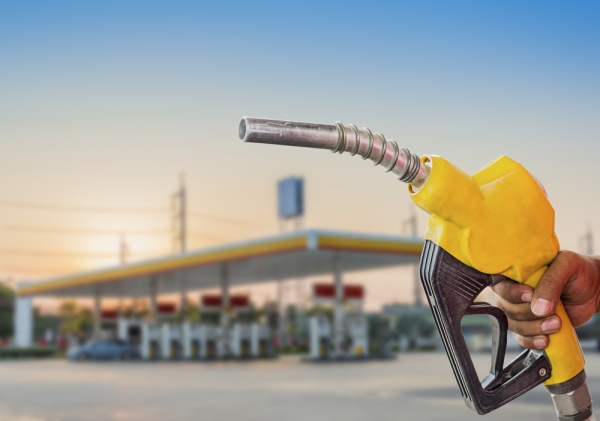The landing cost of Premium Motor Spirit (PMS), commonly known as petrol or fuel, has decreased to ₦981 per litre, as reported by the Major Energies Marketers Association of Nigeria on Thursday.
This reduction marks a decline of over ₦140 from the previous weeks, where the petrol landing cost was approximately ₦1,130, attributed to the recent fall in global crude oil prices as of September 25, 2024.
In August 2024, Brent crude, the global benchmark, was trading at an average of over $80 per barrel but has since fluctuated between $70 and $75 per barrel this month.
On Thursday, it was recorded at $71.41 per barrel, a decrease from the previous day’s price of $73.46 per barrel, according to industry data from the Petroleum Ministry.
Data from Statistica, a global statistical firm, indicated that the average price of a barrel of Brent in August 2024 was $80.36, reflecting a decline from the prior month due to reduced oil demand in China and indications from the Organisation of Petroleum Exporting Countries regarding potential production increases.
In light of the falling petrol landing cost and rising pump prices across the nation, major oil marketers have begun importing the product.
NNPCL
The Nigerian National Petroleum Company Limited (NNPCL) previously held the exclusive position of petrol importer into the nation before the recent increase in fuel prices and the initiation of production and distribution by the Dangote Petroleum Refinery.
Recall that on September 18, 2024, three prominent oil marketers anticipated the arrival of vessels carrying imported petrol the previous week, contingent upon any unforeseen events.
The marketers indicated that approximately 141 million litres of Premium Motor Spirit (PMS) were being transported to Nigeria by these vessels following the federal government’s complete deregulation of the downstream oil sector.
They confirmed on Thursday that some of these vessels had indeed reached Nigerian shores.
This development coincides with the Dangote oil refinery increasing its local petrol production after more than twenty years of reliance on fuel imports.
According to the Major Oil Marketers Association of Nigeria (MEMAN), the landing cost of petrol began to decline in mid-July, dropping below N950 in early September.
Notably, this decrease occurred despite the appreciation of the dollar against the naira, with the landing cost calculated at ₦1,667.22 per dollar.
As of Wednesday, MEMAN reported that the average ex-depot price of petrol ranged from ₦865 to N1,200 in Lagos, ₦980 to ₦1,400 in Calabar, and ₦1,200 to N1,400 in Port Harcourt.
The major marketers also revealed that the landing cost of diesel is currently N1,089 per litre, while aviation fuel is priced at ₦1,117.34.
It was noted that the average ex-depot price of diesel is approximately ₦1,165 in Lagos and ranges from ₦1,200 to ₦1,200 in both Calabar and Port Harcourt.
Furthermore, it was observed that the price difference between imported petrol and that produced by Dangote could be ₦83, assuming a purchase price of ₦898, which the Nigerian National Petroleum Company claimed to have paid for Dangote’s fuel.
Although officials from the $20 billion refinery have denied selling their fuel at N898 to the NNPC, they have not provided an alternative figure for over a week.
It is worth mentioning that the NNPC raised petrol prices on the same day that the Dangote refinery launched its locally-produced fuel.
The NNPC has announced that it will offer petrol sourced from the Dangote refinery at prices exceeding ₦1,000 per litre in the northern regions of the country.
Recently, the NNPC spokesperson, Olufemi Soneye, said the price could reach as high as ₦1,019 per litre in areas such as Borno State, while it may be set at ₦999.22 in cities like Abuja, Sokoto, and Kano.
In southern regions, including Oyo and Rivers, the price is expected to be N960 per litre.
The lowest recorded price, as indicated in an infographic shared by the NNPC, is ₦950 in Lagos and its surrounding areas.
However, it has been noted that petrol prices can soar to ₦1,200 or more in certain locations across Nigeria, while some major retailers continue to offer a litre for ₦910 in Lagos.
In a recent media discussion with prominent journalists, Dapo Segun, the Executive Vice President of Downstream at the NNPC, clarified that although an agreement has been established with managing the Dangote refinery, pricing will ultimately be determined by market conditions.
Segun also provided details regarding the negotiations between the NNPC and Aliko Dangote.
“Dangote said to us, ‘This is how much I want for it (PMS)’. And we say, ‘Hey, Dangote, if we go out there, we can get it for this much, so we won’t pay you this much for it‘. And we went into the negotiation. And that negotiation took us over a week to complete. They (Dangote officials) will come with their position, we’ll come with a counter; they’ll come with a revised position, and we’ll counter it.
“At the end of the day, we were able to reach an agreement on what to be the price to pay for it,” Segun said.
He emphasized a statement by Soneye that the company would lift Dangote PMS only if it was cheaper than imported one.
Meanwhile, the sale of PMS to NNPC continues at the Dangote refinery as Nigerians are hopeful that the price of PMS will crash when the naira crude sale begins on October 1, 2024.

